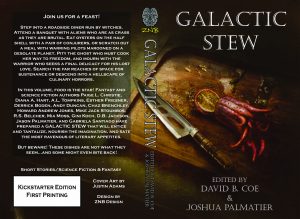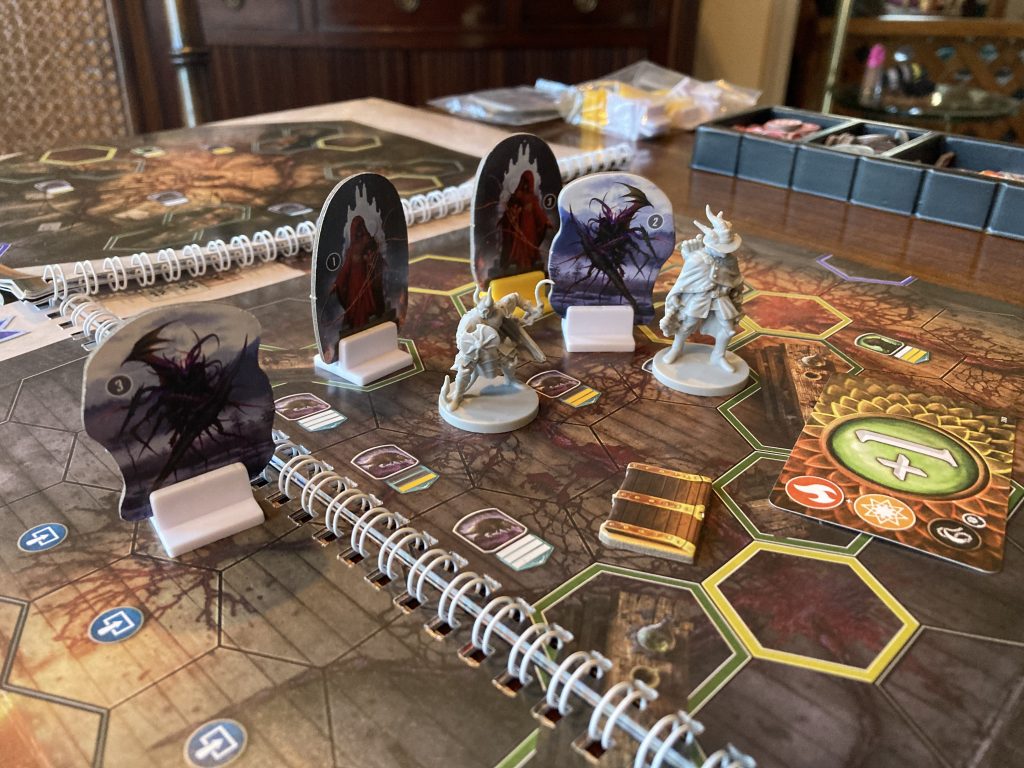A video surfaced on Twitter and social networks over the weekend. It came out of D.C. and the demonstrations there, and in its first iteration, slowed down for effect, it appeared to show a left-wing demonstrator sucker-punching a Trump supporter, who goes down in a heap on the street, unconscious, his phone falling to his side.
A second version of the video emerged soon after, this one longer and in real time. It begins with the Trump supporter attacking a counter-protester who holds a bullhorn and who is obviously saying stuff the Trump supporter doesn’t like. The Trump supporter punches the man, rips the bullhorn from his hand and then knocks the man down and tries to stomp on his head. Other counter-protesters come to the aid of their comrade, a lot of pushing and shoving and punching ensues, and THEN the demonstrator lands his sucker punch.
Finally, a third version of the video, also in real time, longer still than the second, shows that after the Trump supporter is knocked out, another counter-protester, darts in, grabs his dropped phone, and hurries away, bearing a mischievous grin, as if enjoying the violence and also the theft of the phone.
So who is in the right? Who is in the wrong?
The answer, of course, is that none of them is in the right, and that our country is verging on a very dangerous partisan dynamic.
I have struggled with today’s post, going back and forth between my own outrage and resentment, and my deeper fear that our divisions are insurmountable and are bound to spark more and more violence.
I am sick and tired of the extreme political right in this country denying reality in pursuit of their ideological agenda. They don’t want to wear masks or make any meaningful sacrifice that might impact their daily lives. So their answer is to call COVID a hoax and endanger the rest of us. They don’t want even to contemplate long-term changes in their social or economic activity. So they deny that climate change is real and doom our planet to a bleak, likely devastating future. They don’t want to admit that their incompetent, race-baiting President lost. So they call into question the integrity of an election that everyone, from election officials of both parties to international observers brought in by the Trump Administration to Bill Barr’s own selected investigators agree was fair and honest. And in doing so, they imperil our republic.
But I am also pissed off at the activist left. This weekend’s “Million MAGA March” on Washington was a total bust. The event attracted all of 17,000 people. It was a blip, an event worthy of ridicule, despite the laughable attempts of White House Press Secretary Kaleigh McEnany to claim that a million people really did attend. At least it should have been all these things. Lots of people warned counter-protesters away from the city. “Let them have their little protest,” people said. “It will be small, a non-event, and it will make them look that much more foolish.”
But no. Counter-protesters had to show up anyway, leading to brawls like the one caught on camera, and turning the event into something else entirely. Now the story, at least in some circles, is about violence in the streets, about the poor Proud Boys, who came for a simple protest and were attacked by BLM and ANTIFA. That’s a ludicrous narrative, of course. But they have video, which can be manipulated and made to fit their story, as the first version of the fight was.
So, how do we return tolerance, civility, and compromise to our politics and society? Seriously, I’m asking. Because I’m not sure I know.
I want to believe that some of the tension we see boiling over will ease as the passions of the campaign recede. I am fairly confident that certain elements of our nation’s political life will improve, approaching something we will all recognize as normal, once the current occupant of the White House is gone and Joe Biden assumes the duties of the office. Really, though, I’m not entirely convinced.
I hear many on the right say that Democrats and progressives spent four years challenging the legitimacy of the current Administration, and so we should expect them to do the same. Yes, they ignore Russian meddling in the 2016 campaign, and Trump’s illegal solicitation of aid from Ukraine, AND the simple fact that Joe Biden won the election. But they’re not likely to be swayed by my arguments. I understand that.
I also know that these divisions pre-date this Administration. I remember during the Clinton Administration hearing Rush Limbaugh rail against the President, questioning his legitimacy, running a nightly feature called “America Held Hostage.” Democrats still carry resentments from the 2000 election, which was a historically close election. To this day, many on the left believe the White House was stolen from Al Gore. And I still remember the pain of the 2004 election, which I was convinced would rectify that previous injustice.
Most of all, I remember the eight years of Barack Obama’s Presidency, during which he was badgered, insulted, and obstructed non-stop by Republicans in Congress. To my mind, whatever indignities Trump has endured are nothing compared to what Obama faced, in part because Obama did nothing to deserve them. Like a Black motorist being harassed by police, Obama’s only “crime” was governing while Black.
The resentments exist on both sides, and I know that my recitation of grievances could be countered by those on the other side of the political spectrum. There are slights and bruised feelings aplenty throughout the body politic.
The question is, how do we move past them? Or do we not? Are we doomed to spiral on and on into deepening hostilities and civil unrest? Are we witnessing the final years of the American republic as we know it? I don’t want to believe that, but when we can’t even agree on basic facts, like vote totals and election winners, or whether a deadly disease is actually real, what kind of future do we have?
I didn’t mean for this post to be quite so bleak. I take hope from nations that have faced divisions far more serious and lethal than ours. Northern Ireland has enjoyed two decades of relative peace and stability, after a violent conflict that seemed too bitter ever to be resolved. The divisions in the U.S. are not yet that bad. Surely, we can find a way forward as well.
First, though, both sides must commit to finding common ground. And it seems to me that we should begin with the pandemic. COVID is now attacking rural America with the same merciless ferocity it unleashed on New York and other urban areas earlier this year. The red state/blue state divide some sought to exploit for political gain back in the spring and summer doesn’t exist anymore. This disease is attacking everywhere, which means we need a national solution.
Wouldn’t the energy and ingenuity we currently pour into partisan bickering be better spent combating COVID and saving lives in all fifty states? Can’t we agree that dying from a virus is bad, that keeping people alive and healthy is good?
Seems pretty basic to me.










 And I’ll start with this: Joshua and I are generous readers. We will read an entire story, even when it’s pretty clear halfway in (or a quarter in…) that the story probably won’t make the cut. Your goal as a writer is to sell us a story, obviously. But really your goal is to make us consider your story on your terms. Here’s what I mean by that: We are expecting to get somewhere between 300 and 400 submissions, for a total of 6 or 7 slots. (Last year, for GALACTIC STEW, we received 409 and selected 7.) Read those sentences again; I’ll wait.
And I’ll start with this: Joshua and I are generous readers. We will read an entire story, even when it’s pretty clear halfway in (or a quarter in…) that the story probably won’t make the cut. Your goal as a writer is to sell us a story, obviously. But really your goal is to make us consider your story on your terms. Here’s what I mean by that: We are expecting to get somewhere between 300 and 400 submissions, for a total of 6 or 7 slots. (Last year, for GALACTIC STEW, we received 409 and selected 7.) Read those sentences again; I’ll wait. We received the game about three weeks ago, and have been playing more and more in the days since. Even with the parameters streamlined and simplified from Gloomhaven, Jaws of the Lion is very complicated. Our first night with the game all we did was read instructions, sort the pieces and cards, and get acquainted with the broad outlines of play and process. The game is played out over a couple of dozen scenarios, one more complex and difficult than the last. We battle monsters, seek treasure, solve problems, and explore this imaginative world, all the while working together rather than in competition.
We received the game about three weeks ago, and have been playing more and more in the days since. Even with the parameters streamlined and simplified from Gloomhaven, Jaws of the Lion is very complicated. Our first night with the game all we did was read instructions, sort the pieces and cards, and get acquainted with the broad outlines of play and process. The game is played out over a couple of dozen scenarios, one more complex and difficult than the last. We battle monsters, seek treasure, solve problems, and explore this imaginative world, all the while working together rather than in competition.
